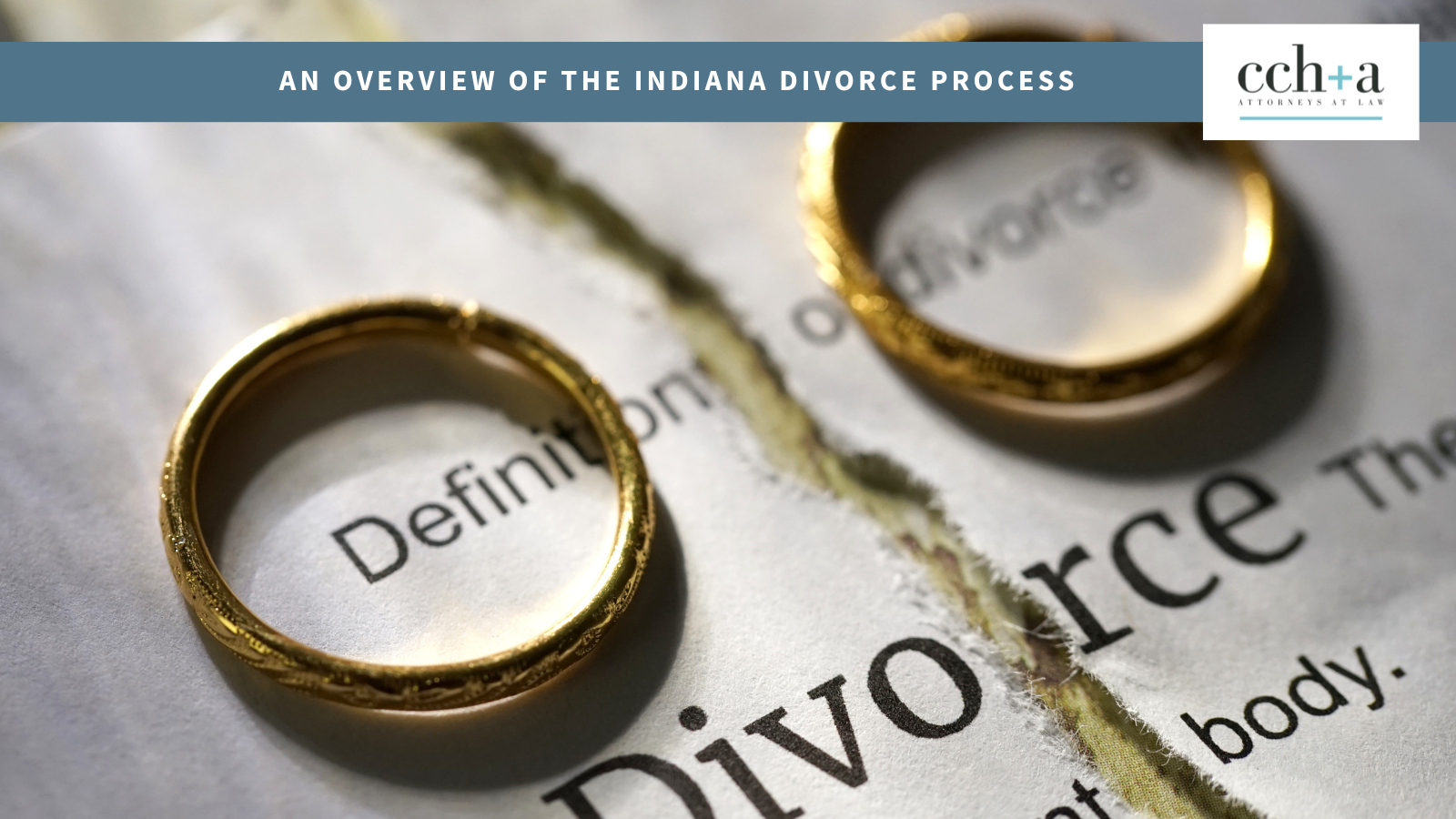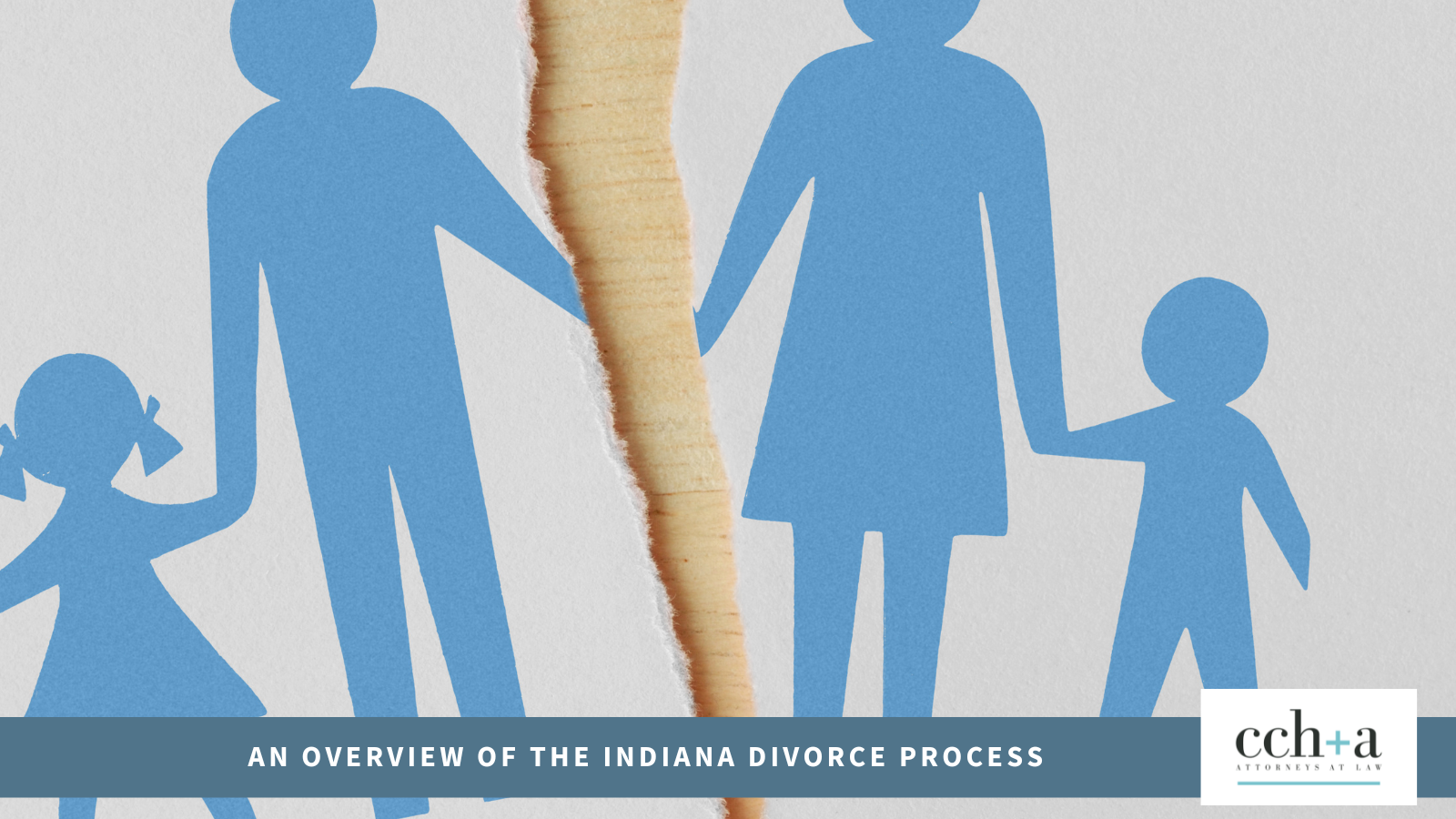
Deciding to end your marriage is never easy. However, doing so might ultimately be best for all parties involved. If you have been served with a divorce petition or are considering initiating the process yourself, you might feel overwhelmed by the unknowns of the process. If so, know you are not alone. Only a licensed attorney privy to the facts of your particular case can guide you through the nuances of the law, but having a basic understanding of the process can make things feel more manageable. Use our overview below to learn more about the divorce process in Indiana and see how the attorneys at Church Church Hittle and Antrim can help.
1. File and Serve the Petition for Dissolution
The first step in any Indiana divorce is filing a verified petition for dissolution of marriage, which must include certain information. Indiana law, Indiana Code § 31-15-2-5, states the specific information that must be included in the petition. Remember that a divorce is a lawsuit, so after filing the petition with the court, the party initiating the divorce must then serve a copy of the petition to the other spouse. This is commonly referred to as “service of process” and provides formal legal notice of the pending action on the opposing party. Many Indiana counties also require the parties to complete a Financial Declaration. It is wise to be prepared with as complete a financial snapshot as possible.
2. Provisional Period
The weeks following filing are referred to as the provisional period. During this timeframe, the parties may request a provisional hearing to establish certain temporary rights and duties that will take effect during the pendency of the divorce proceedings. These provisional orders, sometimes referred to as temporary or preliminary orders, can address topics such as the following:
Temporary custody,
Parenting time and visitation,
Child support,
Financial contributions, and
Spousal support or maintenance.
Notably, however, in accordance with IC § 31-15-4-14, a provisional order will terminate once the judge enters a final decree for the dissolution of the marriage.

3. Discovery
Indiana law entitles the parties to exchange a wide variety of information relevant to finances, as well as custody and support of children. This information exchange is called “discovery,” which can include the following:
The exchange of written questions and answers;
Requests for and the exchange of documents;
Depositions; and
Financial disclosures.
The discovery process allows the parties to ensure that they have all relevant information in preparation to fully resolve your divorce.
4. Negotiations
Divorce can be, but is not always, a lengthy and complicated process. Amicable, out-of-court resolutions promote the health of a family, especially when co-parenting is involved, and are a great way to reduce the time and expense involved in ending your marriage. For this reason, negotiation between the parties is encouraged.
Negotiations might include private discussions between the parties, discussions between counsels, or mediation with a neutral, third-party mediator. If both parties can agree to all terms of the divorce, they can ask the court to approve their settlement agreement and enter that as the final order for divorce, with no need for a hearing or trial.
5. What to Expect at a Divorce Hearing
A final hearing is necessary if negotiations are ultimately unsuccessful. This hearing may entail the following:
The presentation of evidence by both parties;
Examination and cross-examination of any witnesses; and
The presentation of legal arguments on all disputed issues.
If you have questions about how to prepare for your dissolution hearing or are looking for an attorney to represent you in court, speak with one of our attorneys to discuss your options.
6. Final Resolution
After the final hearing, the judge will consider the evidence and arguments presented and enter a final dissolution decree. This final order will set forth the court’s determinations regarding property division, child custody, child support, spousal maintenance, and all other disputed issues.
Note, however, that there is a mandatory 60-day reconciliation period under Indiana Law. Thus, the final negotiated agreement, or the final hearing, cannot be entered or conducted until at least 60 days after the petition is filed.
Speak with an Indiana Divorce Lawyer Today
Going through a divorce can be difficult, but having the right team in your corner can make all the difference.
If you’re looking for an advocate you can trust, look no further than CCHA Law. Established in 1880, we have a rich history of helping our clients during their times of need, and we hope we have the opportunity to help you too. Give us a call to discuss your case and start your pathway forward today.

FAQs
How Long Does the Divorce Process Take?
The divorce process in Indiana will take at least 60 days from the filing date to finalize due to the statutory waiting period. However, the total length of time to complete the divorce process will vary from case to case, depending on a variety of factors. Thus, it’s not uncommon for a divorce to take months to a year or even multiple years to resolve.
Does the Indiana Divorce Process Differ When the Wife Filed for Divorce vs. When the Husband Filed for Divorce?
No, the steps for filing for divorce will be the same regardless of which chooses to file and initiate the process.
